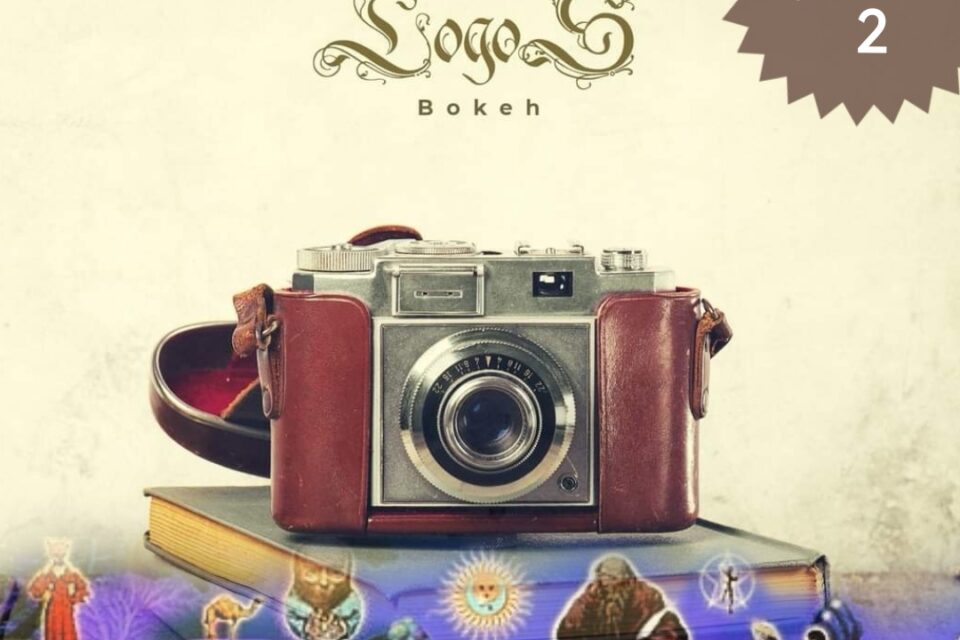In 2014, I took a chance on a Verona based band Logos and their majestic “L’Enigma della Vita” release, presumably because the title (The Enigma of Life) has always been a source of personal inspiration. The fact that the cover was extremely appealing also contributed greatly to relieve any apprehension. But when I heard the contents, ‘I could scarcely believe all the pleasures Inside’, to quote Dave Cousins of the Strawbs on Out in the Cold from the masterpiece Hero and Heroine album. I instantly fell in love, thunderbolts, and lightning, forevermore and remains firmly rooted in my all-time top albums of the 21st Century. To then follow up six years later with the similarly stellar “Sadako e le mille gru di Carta” was the proverbial cherry on the gelato! So much so that I went on a hunting expedition to search for the debut Logos album (from 1999) and its sophomore suite Asrava in 2001. In listening to these earlier efforts, it was abundantly clear that this group had their eyes on the prize right from the get-go, with impeccable vision and desire to express themselves very much in the classic RPI tradition. Patiently taking their time in fostering their already glowing reputation in the world of Prog, the continuously stable line-up of guitarist Massimo Maoli, keyboard wizard Luca Zerman, bass boss Fabio Gaspari and syncopation maestro Alessandro Perbellini took the rather audacious step pf revisiting these two earlier efforts and rearranging, re-mixing and remastering the entire 2 albums after nearly a quarter of a century, with new packaging, art work and fresh sound, a concept I admire deeply. Two separate CDs , each focusing on the respective albums demonstrate a deserved respect for their respect of past endeavours as well as providing their fans with something uniquely endearing.
CD1 Logos album explodes out of the launch pad with the hypnotic epic 18 minute + “Il Grande Fiume”, an extraordinary convergence of refined melodies, dense atmospherics, and vivid imagery, just like the depiction of a major river that sprouts out of some distant glacier, inexorably growing in stature, as it finds the path of least resistance in order to reach the sea. When Gaspari snorting bass guides the stream, the continuous flow swerves through all kinds of tributaries, where splashing organ swells resonate, serenity found in occasional calm lakes expressed by fluid flute sounds. Passing through lush meadows, deep valleys, charming villages as well as larger cities, nothing can hold back the incredible urge to find the end of the line. The sweet vocals tell the tale with impeccable ton, accompanied by large doses of acoustic guitars in the more pastoral moments, yet unafraid the ramp up the energy when faces with various man-made barriers such as dams and bridges. When the electricity elevates the volume, eventually reaching bombastic levels of symphonic delight, swirling eddies of synthesized fortitude colliding with liquid waves of piano, the climactic final sequence exhilarates the drenched soul, the synth diving headfirst into the ocean. Impeccable. A solemn church organ introduces the rainbow colours of “Arc en Ciel” which will be reprised to finish off the debut album. A serene vocal sermon functions as an interval of reverence between the larger tracks to follow. Case in point, the near 10 minute “Sentiero Nel Prato, Porta Nell’Universo” coming across as a typical Italian RPI ballad, laden with folky theatrics until the growling bass, the stern organ and booming drums enter the fray, energizing the arrangement, yet undaunted in transitioning into gorgeous piano-led reflections. The wilder expressions are always nearby, keeping the pulse tense and exciting, until next dip into peaceful ponderance, just like the sun appearing through the rain clouds after a sudden deluge. A shorter song orientation is to be found on “Un Giorno”, featuring some acidic synth from Zerman and strident Maoli electric guitar interplay as well a rather old school early RPI feel, with echoing vocals and spooky organ makes the feel intriguing. “In Una Nuova Terra” follows somewhat the same path, perhaps invoking more melancholic vocal intonations, but still armed with tormenting guitar colourations, aggressive piano, catapulting bass, and a fair amount of cyclonic rage. Out of the blue, as if emerging from a dense forest into a bucolic field, there is a brief moment of calm before exploding into chaos once again.
CD 2 Asvara. Unsurprisingly, the profound “Prologo” positions an obscure canvas, streaking synthesized echoes, ominous and disturbing gong banging notwithstanding, the impression is highly electronic, sorrowful, and even eerie. A perfect introduction for the enterprising instrumental “Ezra Pound” an avant-garde modernist poet, who had a rather controversial reputation, certainly intended as such. The music fits the description, with shifting esthetics, menacing bass lines, dense dispositions, and a harsh rhythmic pulse. Gaspari plays this insistent, effect- laden bass line, in close collaboration with the sledgehammer chop of Perbellini’s rather manic drumming. Maoli adds the slivers of guitar insanity that verges on mania. “’99” is another epic piece, clearly in the more symphonic style with tons of mellotron, but in a rather more muscular mood mainly due to the pounding rhythms, the buzzing guitars and the relentless organ flaming through the arrangement. Plenty of polyrhythmic twists and turns, transitions ands shifts galore overtake the speakers, keeping the listener on a knife’s edge (Hello Keith), unable to predict what will come next. Church organ offers brief prayers of salvation, signalling a new sonic direction, cleverly playful, the vocals offering a hint of Aldo Tagliapietra (Le Orme) style, almost angelic but the image ruined by a monetary evil bass flurry, a beastly drum harassment and a kneeling at the shrine bow. Rustic beauty is much needed after such a turbulent ride, “La Leggerezza della Liberta” has a strong PFM ballad feel, where simplicity is incarnate, just a suave voice and an acoustic backdrop, light harmonies, and poised thought. “Asrava” is in reference to the influence of body and mind causing the soul to generate karma and it’s a surprisingly funky ride, with a virtuoso bass groove that one can almost sway to, perhaps even to the point of finding a sense of destiny and fulfillment. Jazzy guitar flicks with some superb effects, pulsating syncopations, at times very reminiscent of the Alan Parsons classic piece, “The Voice”. Cinematographic in texture, this could easily be a soundtrack for an intense movie, the trumpet solo from Alessandro Foroni is utterly exemplary in finishing off this delight! A definite highlight track here, all instrumental but exhilaratingly seductive. The dreamy side of the band is exposed on “Terra Incognita”, with plenty of aquatic effects, distant sounds and electronic sheen, courtesy of Luca Zerman’s arsenal of keyboards and that choir mellotron that inspires the eventual transition into more athletic expanses. The voice is shuttered in echo, the chorus grandiose and the guitars appropriately razor sharp, before reverting to the liquid aural canvas. When the organ, bass and guitar resume their onslaught, the bluesy feel becomes apparent, once again a nod of respect to the past Italian RPI greats we all know and love. And finally, arrival to the terminal station of “Epilogo”, a profoundly impactful finale, with an exquisite melody that reaches for the stars and the heavens beyond. Keyboards and a tired voice that still infuses deepest emotion and finality, and Maoli picking gently into the sunset. Lovely.
This wonderful gift only serves to further invigorate the legacy of Italian Progressive rock, showing that returning to one’s roots is a source of not only comfort but ongoing inspiration. Logos continues to shine ever so brightly in our hearts and souls.
5 out of focus blurs
LOGOS Bokeh music review by tszirmay
Original link: https://www.progarchives.com/Review.asp?id=2988325
Bokeh: LINK

